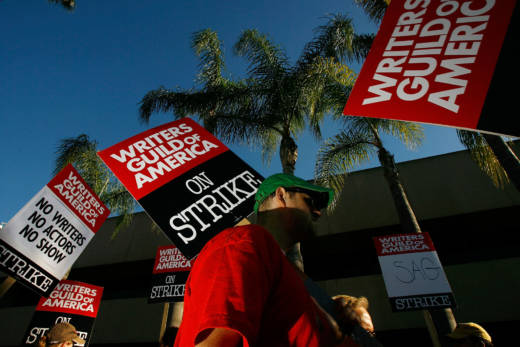Hollywood writers and producers reached a tentative deal early Tuesday, averting a strike that could have crippled TV and film production and inflicted harm on the wider California economy.
The three-year agreement, which requires ratification by members of the Writers Guild of America, was confirmed by the union and Alliance of Motion Picture and Television Producers spokesman Jarryd Gonzales shortly after the current contract expired early Tuesday. The deal followed a flurry of last-minute bargaining, conducted during a media blackout that offered no tangible details about whether picket lines would go up Tuesday morning.
"There was a collective applause when it happened," said screenwriter Bert V. Royal. "I think we’re all relieved and excited to get back to the work at hand."
